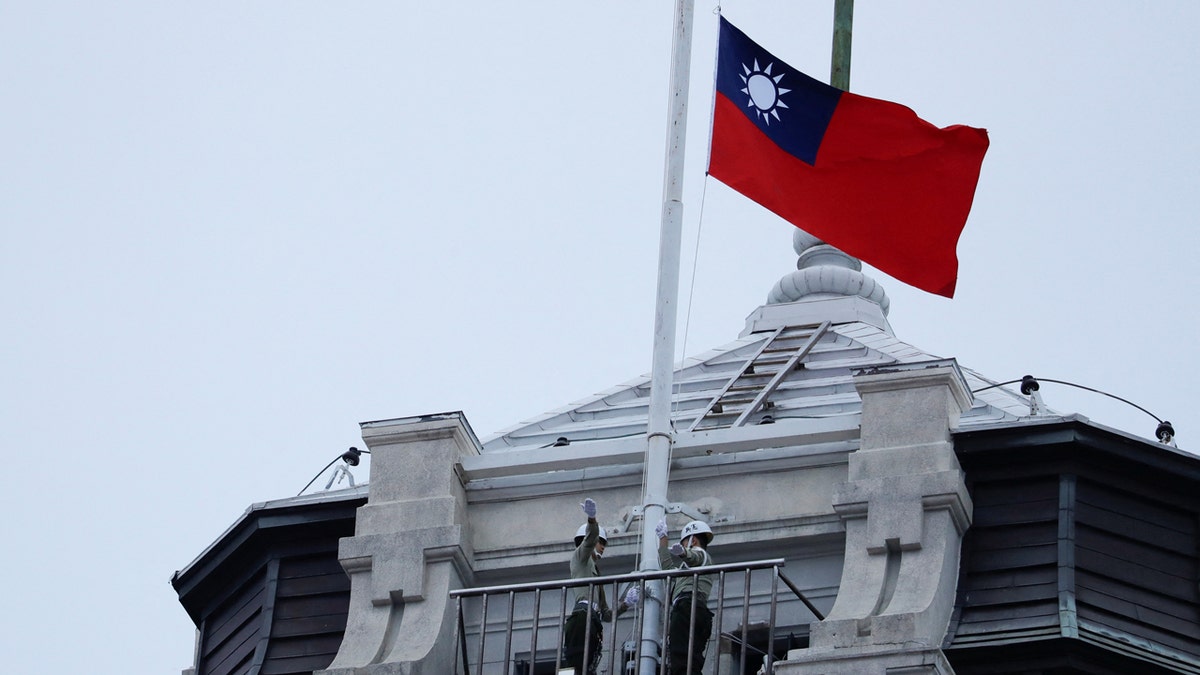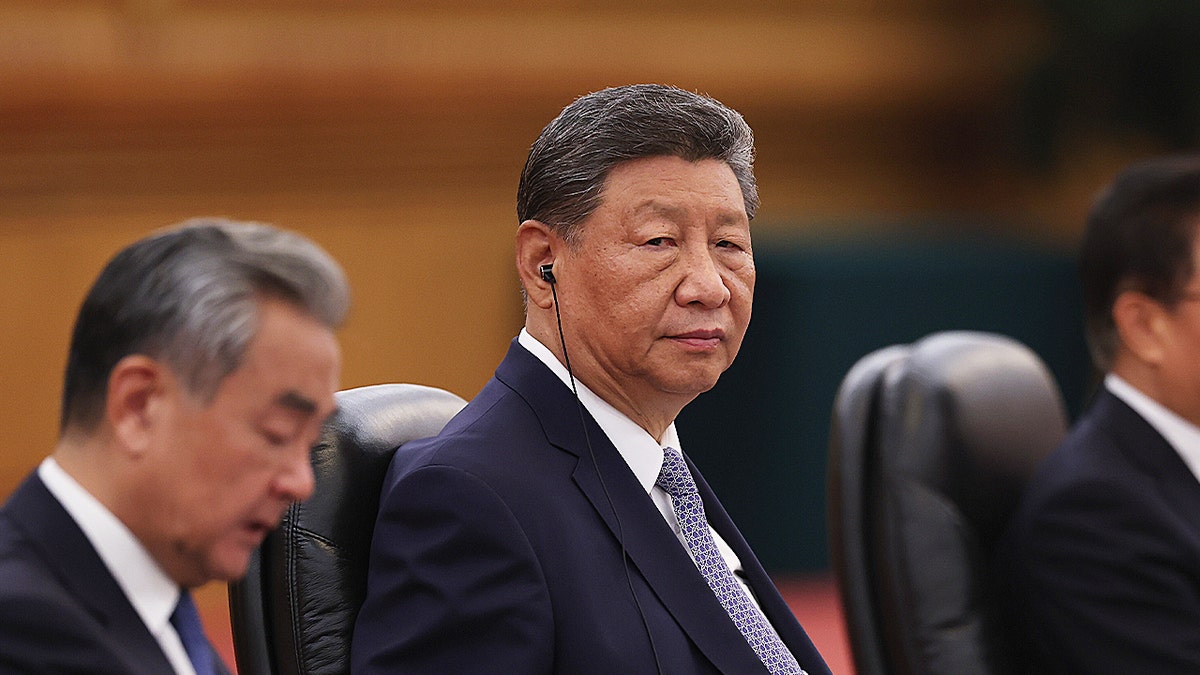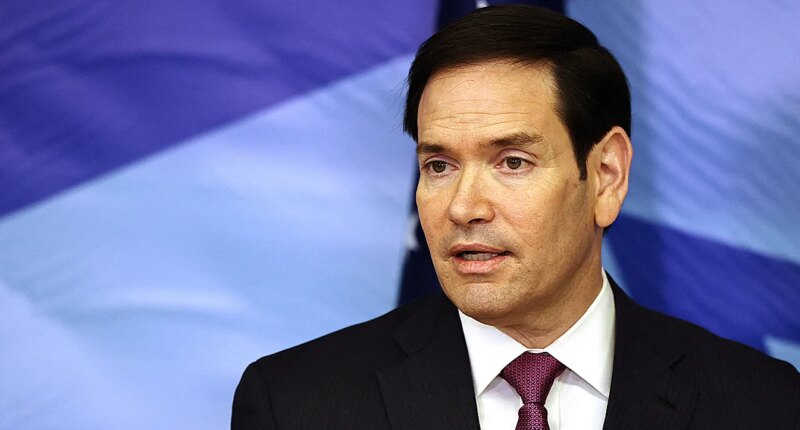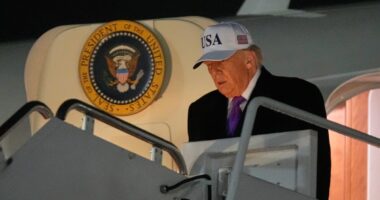Share this @internewscast.com
On Sunday, Secretary of State Marco Rubio reaffirmed the United States’ enduring commitment to Taiwan, emphasizing that the island will remain a priority amid ongoing trade discussions with China.
During his travels between Israel and Qatar before joining President Donald Trump in Asia, Rubio reassured reporters that Taiwan should not fear being sidelined in trade negotiations.
“There’s no intention to strike a trade agreement that involves trading off Taiwan for economic advantages,” Rubio stated. “The notion of abandoning Taiwan for favorable trade terms is simply not on the table.”

Secretary of State Marco Rubio reiterated the U.S.’s steadfast support for Taiwan. (Fadel Senna/Pool via Reuters)
Chinese President Xi Jinping has been actively encouraging the U.S. to alter its one-China policy, which currently acknowledges China’s claim over Taiwan while maintaining informal relations with the island.
In particular, Beijing has urged the Trump administration to adopt a stance explicitly stating that it “opposes” Taiwan’s independence. This shift would mark a significant diplomatic victory for China, as the current U.S. position is that it “does not support” independence.
Taiwan is a significant issue in China’s relationship with the U.S., with a strained relationship over other issues such as trade, technology transfers and human rights.

Secretary of State Marco Rubio said Taiwan should not be concerned about the trade negotiations. (Reuters/Carlos Garcia Rawlins/File Photo)
The U.S. is Taiwan’s biggest military backer, but Trump has floated the idea that the island should have to pay for security.
Trump declined to answer when asked about U.S. policy toward Taiwan while heading for Asia on Air Force One.
“I don’t want to talk about that now. I don’t want to create any complexity. The trip is already complex enough,” Trump told reporters.

Beijing has asked the Trump administration to officially adopt language saying that it “opposes” independence for Taiwan. (Lintao Zhang/Getty Images)
The U.S. president is scheduled to meet Xi next week while attending a regional summit in South Korea, the first meeting between the two leaders since Trump returned to the White House in January.
Trump’s trip to Asia will include stops in Malaysia, Japan and South Korea.

















